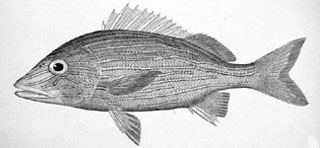"The moment one gives close attention to any thing, even a blade of grass it becomes a mysterious, awesome, indescribably magnificent world in itself."
- Henry MillerToday's entry has to do with looking, really looking, at the natural and human world. I hope it will bring a bit of attention to beauty and intrigue too many of us are missing. I'm tempted to say we're doing that less because of the pressures of this modern world, but I that may be jumping to an unfounded conclusion. We pay attention to what's relevant to us, or what we perceive as relevant to us, and I expect that has always been true. Certainly industrial workers confined to industrial cities have been missing connection to the natural world for generations.
Before going further, I should point to why paying attention to the world around us is relevant to understanding climate. The primary connection is that you don't recognize change if you don't know what a place, a thing, a person, or a climate is like at some earlier time. I've written before about getting to know what your climate is like in a visceral way. As we spend more and more time in climate conditioned spaces we lose touch with our environment and our climate. This is another prod to keep or rebuild that connection.
This modern world allows us to move from climate-conditioned space to climate-conditioned space by way of moving climate-condition spaces. Your GPS allows you to get from point A to point B without paying a whole lot of attention to where you are and what's around you. Attention to landmarks has suddenly become unnecessary as we move about in vehicles that create uniform climates around us. It's great, of course, but it also has its costs. You can use your GPS as a mentor for learning the lay of the land. Or you can use it to ignore the lay of the land.
What do you do to give more attention to your environment? First, remember to do it. That might lead you to walking and biking more and driving less. That's got pluses besides bringing you more in touch with your environment of course. Then, stop and smell the roses. And draw the roses.
Hæmulon elegans, NOAA, Drawing by H. L. Todd
One of my favorite essays describes Louis Agassiz's approach to teaching. Agassiz was the first to present a scientific case for an ice age (and a direct opponent to much of Darwin's work). In the Laboratory with Agassiz, also known as Look at Your Fish! by Samuel H. Scudder, tells the tale of Scudder's first encounter with his mentor Agassiz. And, of Scudder looking at his fish long and hard:
Half an hour passes—an hour—another hour; the fish began to look loathsome. ...
...At last a happy thought struck me—I would draw the fish; and now with surprise I began to discover new features in the creature. Just then the Professor returned.
"That is right," said he; "a pencil is one of the best of eyes. I am glad to notice, too, that you keep your specimen wet, and your bottle corked."
With these encouraging words, he added, "Well, what is it like?"Scudder gave his reply in terms of what he had seen in his first hours with the fish. Agassiz listened and replied:
"You have not looked very carefully; why," he continued more earnestly, "you haven't even seen one of the most conspicuous features of the animal, which is a plainly before your eyes as the fish itself; look again, look again!" and he left me to my misery.
The tale continues, unearthing how Scudder learned to see more and more about the fish. And about looking.
Of course, I'm partly urging you to go and look with your pencil, but more importantly, I'm just asking you to really, really look. There is so much awe-inspiring stuff in this world that we miss as we rush through it. And, unfortunately, we think much of that beautiful stuff is being flushed away, so we should enjoy it while we can.
Of course, I'm partly urging you to go and look with your pencil, but more importantly, I'm just asking you to really, really look. There is so much awe-inspiring stuff in this world that we miss as we rush through it. And, unfortunately, we think much of that beautiful stuff is being flushed away, so we should enjoy it while we can.
And, if you went right past the first link above, it's a powerful example of how we blow by beauty in our rush from point A to point B. Here's virtuoso violinist Joshua Bell playing his Stradivarius in a Washington, DC Metro station and essentially being completely ignored:
Go forth and pay attention!


No comments:
Post a Comment